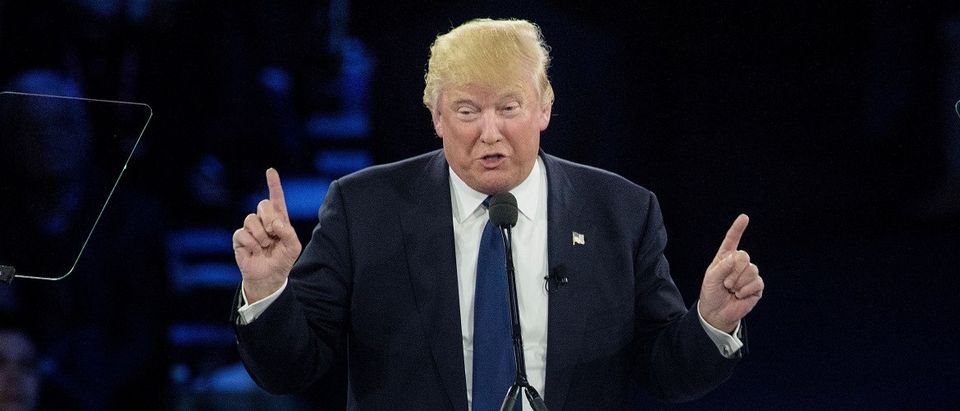As a Trump nomination becomes more likely, it’s inevitable that people who once thought the idea absurd should begin to adjust to it by downplaying the importance of things that once seemed like deal-breakers. Edward Luttwak spoke in this vein in the Wall Street Journal recently (“Suffering from Trumphobia? Get over it!” WSJ March 10) when he remarked “Mr. Trump’s lack of good manners may be disconcerting, but…”
Making the best of a bad situation is a useful human trait, but not when it involves shutting one’s eyes to reality. Luttwak reduces Trump’s constant vulgar insults and threats against those he disagrees with to a superficial issue of politeness that would say nothing fundamental about Trump. But the matter can’t be so reduced, because it tells us two very important things about him as a person and potential president. One of the two goes to the question of his moral character, but it is the lesser of the two, because the other goes to whether he will be up to the job of weighing the pros and cons of policies and courses of action that will face him every day that he is President.
The character issue is the more obvious: Trump’s non-stop insults and threats tell us that he is full of uncontrolled malice toward others, and a bully. Luttwak’s reduction of this to mere lack of refinement is head-in-the-sand avoidance of a character flaw so serious that none of us should want our children to see it in a president — a role model, after all.
So much for the character issue; but we don’t fully understand the significance of Trump’s insults until we see them as all of a piece with the whole range of apocalyptic value judgments that pepper his speech. What does Trump say about his health care plan? “We are going to have great plans.” And: “I do tremendous health care.” What about himself and his career? “I built an unbelievable business.” How about jobs? He’ll be “the greatest jobs-producing president that God ever created.” How about the wall on the southern border? “I would build a great wall — and nobody builds walls better than me, I will build a great, great wall.” Taxes? Of course, he’ll have “a great tax plan.”
The over-the-top bragging and the extravagant self-congratulation about the programs he’ll have are the mirror image of the insults, for what they both have in common is that they lack specific content. The positive judgments avoid any explanation of what it is that will set these programs apart from others, or what it is about Trump’s way of doing things that makes it so different to what other people might do, but exactly the same thing can be said about the negative judgments. They too are substitutes for an explanation of what his policy differences are with those he insults. People are either great or they are really nasty (or pedophiles, or losers, or lacking energy, etc.) — but Trump can’t talk about his policy differences with those he insults, nor can he talk about the distinctive features of his own approach. The same goes for plans: they are either terrible or great, but when it comes to the crucial features of the one as opposed to the other, Trump has little to say.
Both the insults and the extravagant self-praise mark the limits of Trump’s thought. We — his audience — want to hear exactly what it is about someone that deserves his insults, or what exactly will make Trump’s plans great. But that’s all he has.
To be sure, Trump sometimes sounds different — when he is making a formal speech. Then he is hailed as “a new Trump.” But those speeches seem to have no connection to his behavior in any other context, which suggests that he didn’t write them. Trump’s face to face interactions with other people give us a consistent picture quite unlike his prepared speeches. In those interactions insults and self-congratulation are substitutes for a clarification of his differences with other candidates and of how he would do things differently. Both ends of this spectrum of crude evaluations point to the same thing: he can’t talk about policy differences in any normal way.
If indeed all that was at stake in Trump’s insults was bad manners, that would still be regrettable: good manners are about respect for other people, and we should want a president to be respectful. When we add in the spite and bullying in the insults and threats, we are already in more serious territory: these indicate a personality defect that is disabling in a Presidential aspirant. But what should alarm us most about both the abuse and the bragging is Trump’s inability to explain and analyze policy differences, because that raises the question whether he can handle the most basic aspect of a president’s job: thinking through the pros and cons of policy choices.
John M. Ellis is a Professor Emeritus at the University of California, Santa Cruz, and Chairman of the California Association of Scholars


